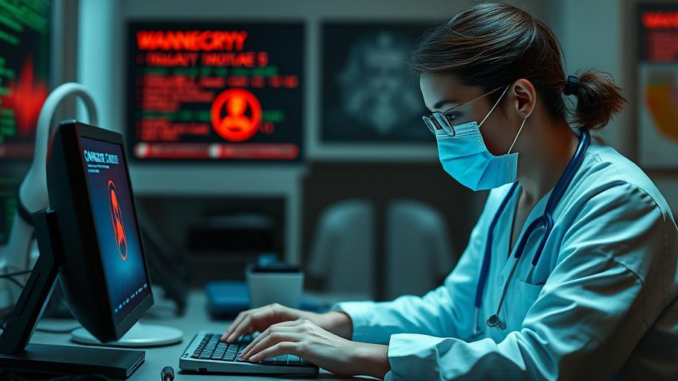
Summary
The 2017 WannaCry ransomware attack crippled healthcare systems worldwide, highlighting the vulnerability of critical infrastructure to cyber threats. The attack disrupted patient care, caused financial losses, and exposed the urgent need for improved cybersecurity measures in the healthcare sector. This article delves into WannaCry’s impact, exploring its spread, consequences, and the lessons learned.
Main Story
Remember WannaCry? Back in 2017, it felt like the world was holding its breath. A massive cyberattack ripped through global healthcare, and it was a real wake-up call. This self-spreading ransomware infected systems in 150 countries. Hospitals and medical centers, even the UK’s NHS, were crippled. It really underlined just how vulnerable our critical infrastructure is when cybersecurity isn’t up to par.
Essentially, WannaCry, which went live on May 12th, exploited weaknesses in older Windows operating systems, you know, the ones that hadn’t been updated in ages. The ransomware encrypted everything – patient records, medical devices, the works. Suddenly, hospitals were locked out of their own systems and the attackers? They demanded Bitcoin to restore access. Can you imagine the chaos?
The NHS was hammered. Over 60 trusts were affected, and operations were really disrupted. Ambulances had to be diverted; non-urgent surgeries were postponed. Thousands of appointments? Cancelled. The whole system felt the strain, and, patients were left in limbo wondering when they could receive care. It wasn’t just the UK, either. Hospitals and businesses across the globe were hit, showing how interconnected everything is and, frankly, how easily malware can spread.
The financial hit was huge. Estimates say the NHS alone lost millions thanks to lost productivity, system recovery, and new security measures. But beyond the money, how do you put a price on the damage to public trust and a tarnished reputation? I mean, it’s hard to quantify that.
What did WannaCry teach us? Well, several things. Many hospitals were running on outdated systems, which made them sitting ducks. Plus, weak cybersecurity protocols and a lack of staff training just made everything worse. The attack shouted the need for proactive security measures, such as regular software updates, strong firewalls, data backups, and, importantly, teaching employees about phishing and other online dangers. It is important to stay up to date.
After WannaCry, governments and healthcare organizations globally started beefing up their defenses. More money went into cybersecurity infrastructure, stricter regulations were put in place, and international cooperation increased. It was a turning point, really increasing awareness of how vital cybersecurity is for protecting patients and keeping healthcare systems secure.
To sum it up, WannaCry was a crucial moment in healthcare cybersecurity history. While it caused a lot of disruption and cost a fortune, it pushed us to invest in better security and collaborate globally to fight future cyber threats. And though it happened years ago, the lessons are still relevant today. It reminds us that we need to stay vigilant, be proactive, and work together to protect our critical infrastructure from cyberattacks. We can’t afford to be complacent.


So, besides the obvious “update your systems,” what innovative solutions are being explored now to prevent similar large-scale ransomware attacks, especially considering the increasing sophistication of cyber threats? Asking for a friend (who definitely keeps their software updated…).
Great question! Beyond updates, one exciting area is AI-powered threat detection. These systems learn normal network behavior and can identify anomalies suggesting an attack *before* it locks down systems. Research into decentralized data storage and blockchain for healthcare records is promising too! Perhaps your ‘friend’ has explored these further?
Editor: MedTechNews.Uk
Thank you to our Sponsor Esdebe